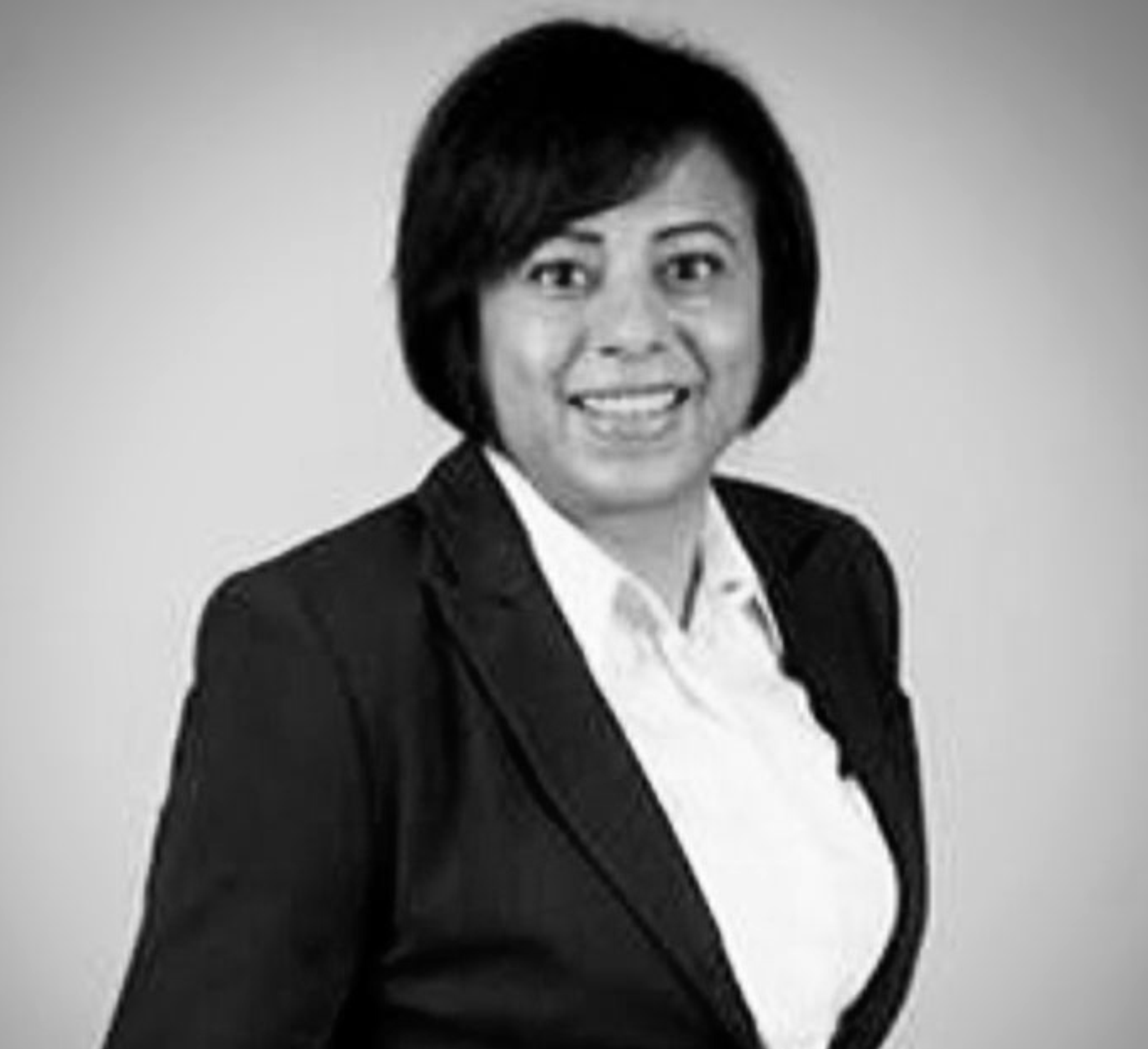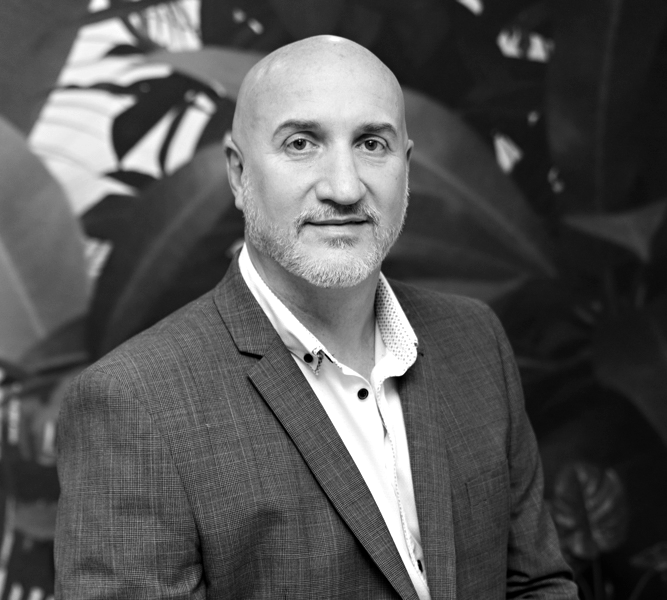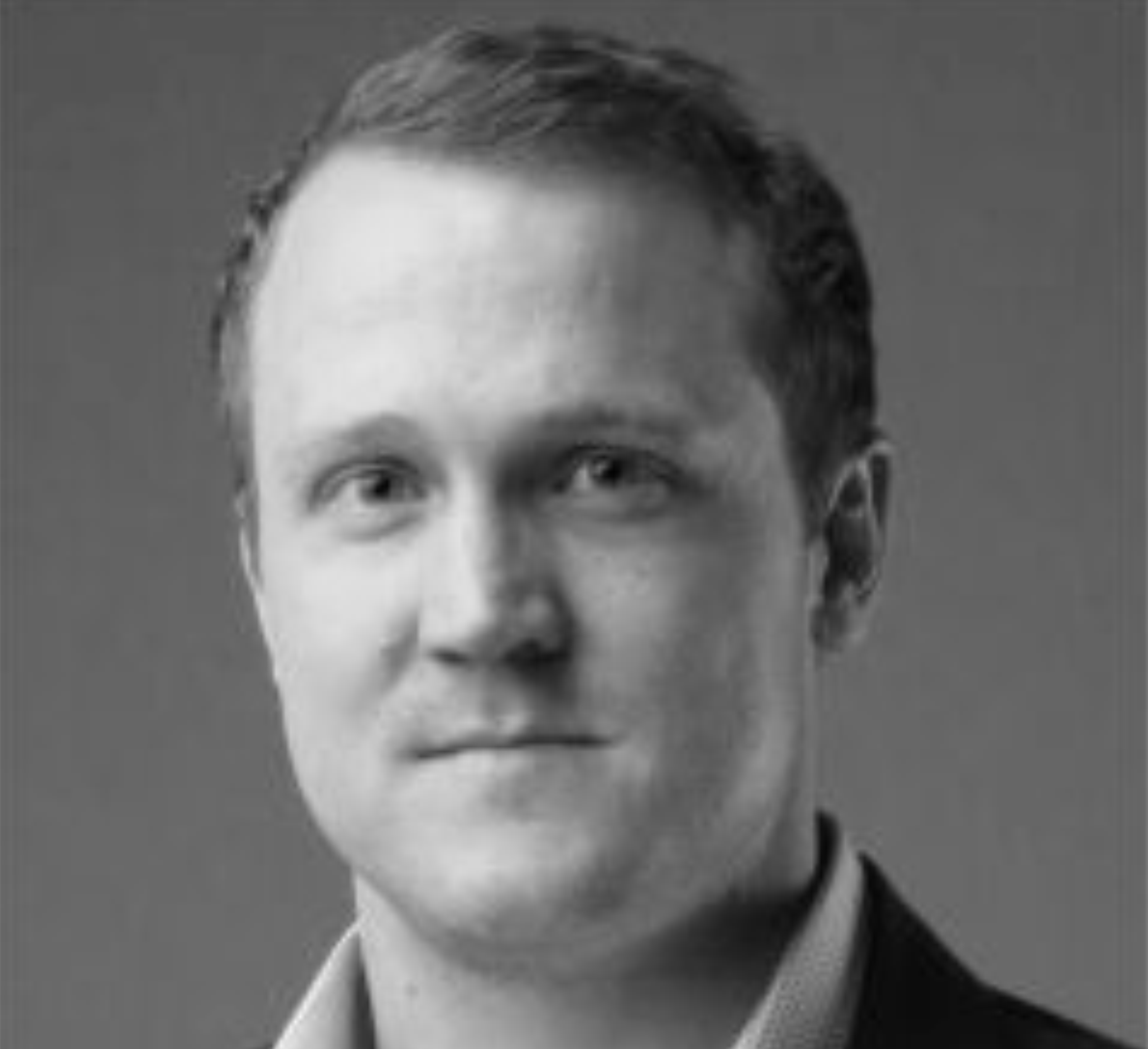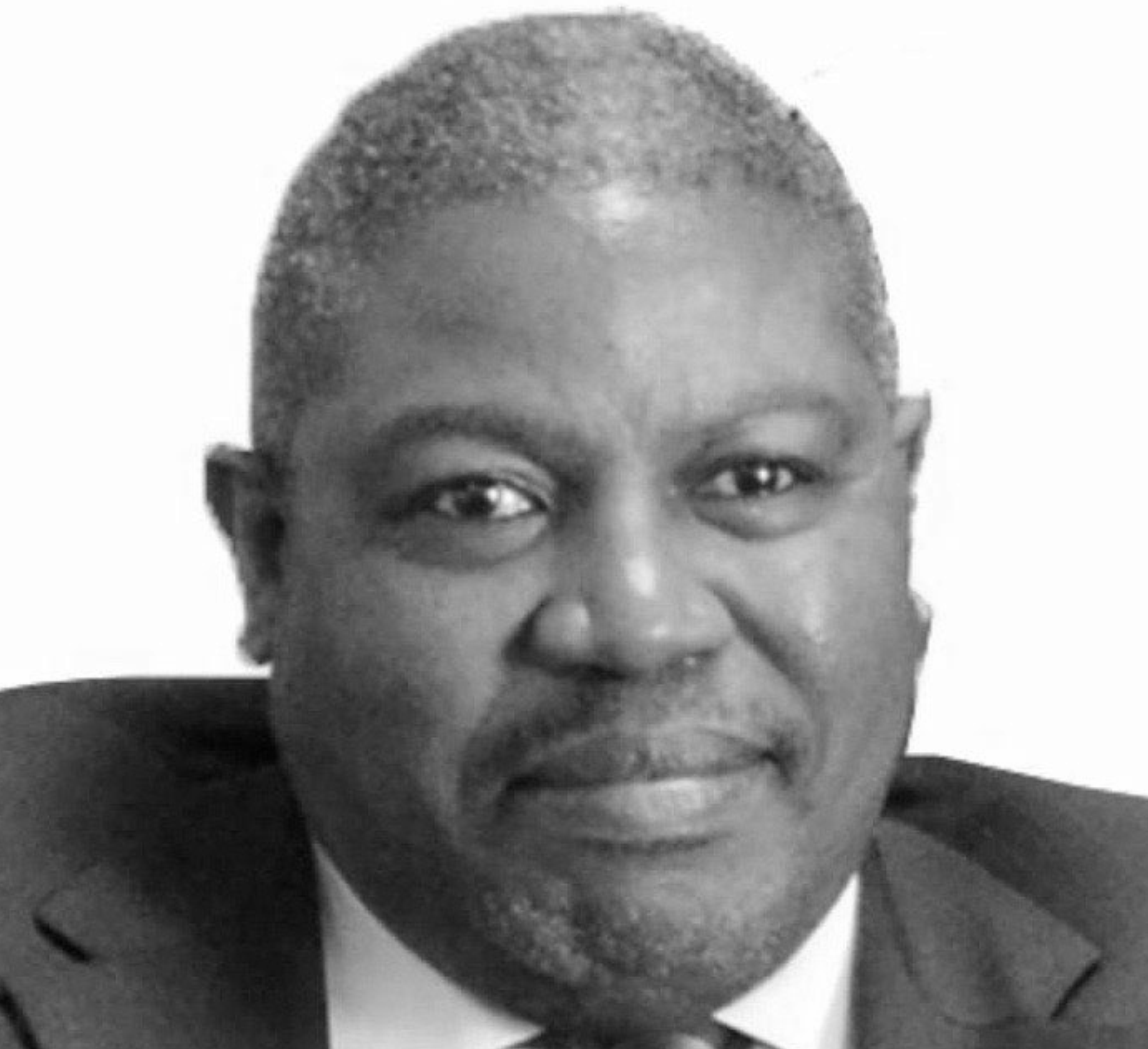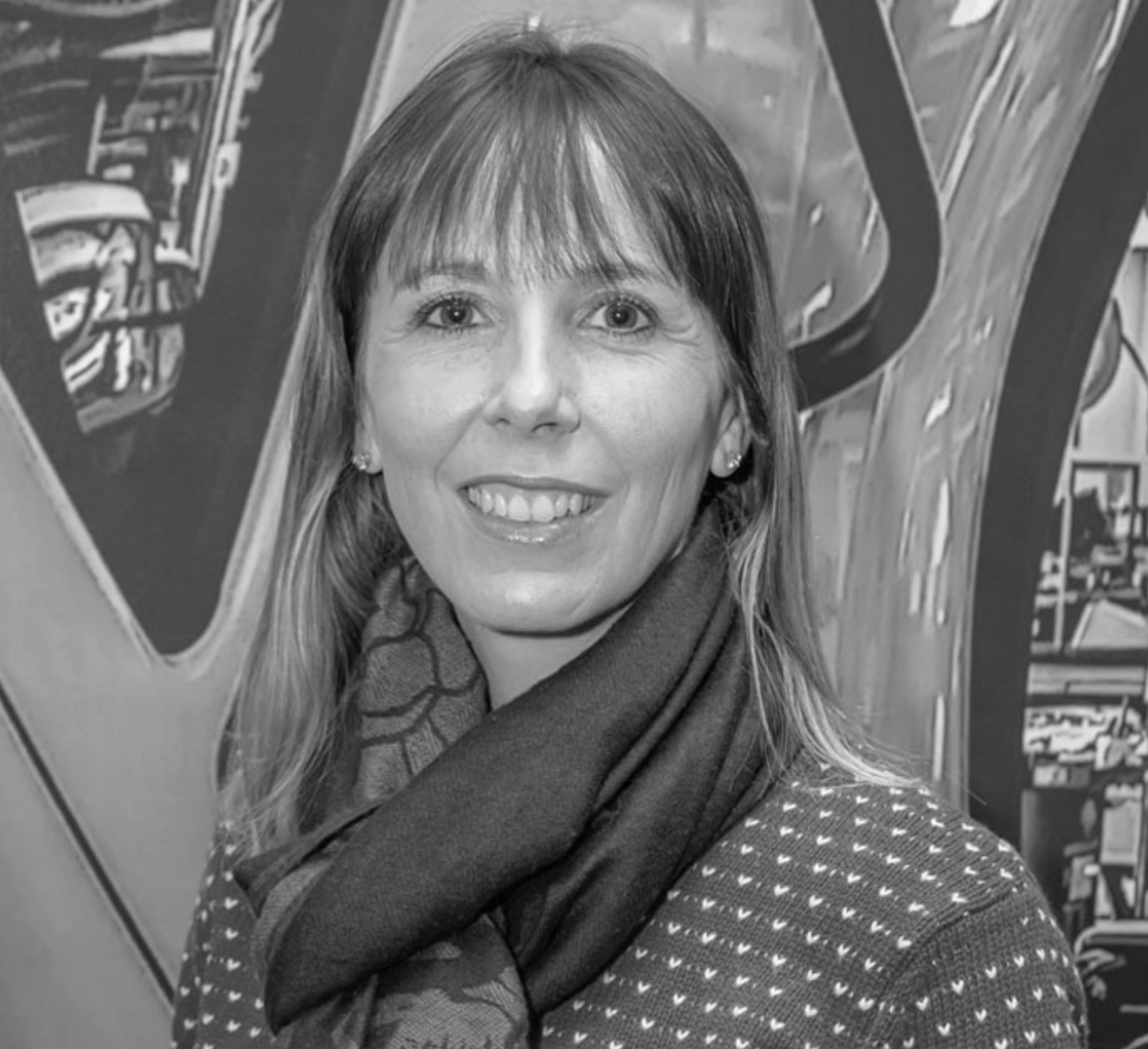150: Fatima Darsot
‘I like to take the theoretical and make it practical.’
Fatima Darsot’s shares how her career has been enriched through her love for teaching and mentoring graduates by empowering them with practical knowledge that allows students to have greater confidence to advance their careers.

CIARAN RYAN: Today’s podcast is sponsored by Draftworx, which provides automated drafting and working paper financial software to more than 8000 accounting and auditing firms and corporations. CFO Talks is a brand of the South African Institute of Business Accountants. It’s a great pleasure today to welcome Fatima Darsot, who is audit executive at mobile network operator Cell C. Before that, she was CFO at Astra Wealth Financial Services and before that she was head of finance at Virgin Mobile. As a consultant she was involved in forensic investigations and handled projects in a range of sectors from actuarial firm to logistics and catering. She has a love for teaching and mentoring graduates from disadvantaged backgrounds and has helped dozens to advance their careers in the accounting field. First of all, welcome Fatima, and where are we talking to you from today?
FATIMA DARSOT: I’m at the Cell C offices in Waterfall, Pretoria, Ciaran.
CIARAN RYAN: Great and for those who are outside of South Africa, Waterfall is in the Midrand area between Johannesburg and Pretoria. Tell us a little bit about your current engagement at Cell C, and for people outside of South Africa, explain Cell C and its role in the mobile telecoms space in South Africa.
FATIMA DARSOT: This is not an internal audit role, so I’m looking at assisting Cell C in preparing them for the audit, the external audit, and I have a team of five chartered accountants who work under me and who report to me. So we are helping Cell C get all their information, gather the information, understand their processes, assist with any documentation that needs to be done so that they are prepared for their audits currently and going forward, that’s the external audits. Cell C is a telecommunications company in South Africa. It’s third on the list, there are four huge telecommunications companies, Cell C is third. Cell C is the only company that allows other companies to use their infrastructure and set up smaller telecommunications companies within South Africa. For example, Virgin Mobile uses the infrastructure of Cell C, and it’s called an MVNO. Like I said, Vodacom and MTN are the other big telecommunications companies, and they don’t offer that service. I don’t know if they’re thinking of it down the line, but currently Cell C is the only one doing that. So it has a huge customer base, it sells phones, it sells contracts to customers, as well as data, airtime, to assist people with communicating through their cell phones. So that’s what Cell C does.
CIARAN RYAN: You mentioned that you’re at the Cell C offices in the Midrand area, are you operating from the office as a regular thing or are you mixing it up because of the Covid lockdowns, you’re partly at home, partly at the office?
FATIMA DARSOT: Partly at home, partly in the office. I’m feeling a bit braver at the office since I have been vaccinated.
CIARAN RYAN: Tell us about your career path and where you grew up, your family, where you studied and how you ended up here.
FATIMA DARSOT: I grew up in Johannesburg. I studied at, I started out at the University of the Witwatersrand and then finished off at the University of South Africa after I had my children. My family is very business oriented, my parents owned a chicken wholesale, so it was always business around the table. Accounting was just a natural fit because I love numbers. I know that sounds cliched, but I enjoyed understanding everything I possibly could about finance, and I think it’s assisted me in both my personal and professional life.
CIARAN RYAN: What attracted you to the accounting? Was it the fact that you come from this business background, you said there was a lot of business discussion around the table. Did you have a natural affinity for numbers? What was it?
FATIMA DARSOT: It was the natural affinity for numbers that I always had and also, the discussion around the table was always so riveting, especially when it came to finance and business and growing a business, and to me it seemed so important. It was conveyed in…we were told from a very young age, we were exposed as a family, my father was very proactive about exposing us to as much as possible in terms of what’s happening in the world, geopolitics, economics, and we were exposed to a lot of what’s happening in the country, in business, in companies and growing companies. He constantly grew companies and then sold them and then approached his next project, and it was always such an exciting thing to do. We also assisted him while we were in high school with his ventures, and it was just rewarding. It was riveting in that you got to see first-hand what happens within a company. You also got to see how politics influences business. For example, when we had the 1976 riots in this country, many businesses were affected and his was one of them. He had trucks that were burned, and he suffered financially, and he managed to get himself out of that hole and to become quite a strong businessman going forward and get us to a position where we could do what we wanted to do and have careers and go to university. So it was very interesting to see how all that played out and to be part of that journey, and to be busy learning while they were busy going through this, my parents.
‘The greatest challenge is assisting a company and putting it on a footing that is more secure.’
CIARAN RYAN: Tell us, as an accountant, what were some of the most challenging encounters you’ve had or professional engagements that you’ve had?
FATIMA DARSOT: Every single job I have had has had a certain amount of challenge. I think the most challenging thing was assisting one of my companies with their cashflow challenges and looking for ways of how to bring the money in. Then that spoke so clearly to the strategy and the future of the company. The thing that made that so interesting was it was important, it was work that desperately needed to be done. As an accountant, here I was with my team, assisting the business in moving forward and securing itself. So that was probably the most challenging thing I’ve ever had to do. I’ve done it in most of my roles. I’ve done it at Old Mutual, where we assisted the company in saving money. I did it at Virgin, where we assisted the company in bringing in money and refining their processes and putting the company on a footing that was more secure. So I’ve had many challenges. The greatest challenge is assisting a company and putting it on a footing that is more secure, and I’ve had the opportunity to do that. I think I would consider that the most important thing I’ve done in my career.
CIARAN RYAN: Interesting, I’m also interested to hear about your teaching career, so you’ve been
involved in teaching accounting and tax and what is it that attracts you to the teaching side of things and what do you like most about it?
FATIMA DARSOT: I think the thing that attracts me most to the teaching side of things is that when you’re taught correctly, things get so much easier. I think this started when I was a manager at KPMG, the thing that I noticed was often trainees who come in would be stressed and overwhelmed because they wouldn’t know how to approach something, how to get through a particular section of the finance, of the balance sheet or income statement. It made their lives so much easier when they were taught correctly and it’s not that the universities are not doing a good job. It’s just that the theoretical knowledge that’s taught at the university is often so the trainee would come into the company, not equipped to deal with the practical reality of their career. They’re very good on the theoretical side of things but converting that into practice was often a challenge for them and I noticed that when I took time out to teach them and train them. When I was taught and trained, it made my life easier, and it made their lives easier. Then I noticed that it seems to be a pattern around newly qualified CAs or anybody in the accounting field where, again, there’s a gap between the theoretical and the practical and that gap is meant to be covered when they do their articles. It’s meant to be bridged when they do their articles and often it’s not. So they might have lingering questions about practical application and that’s what I like to do. I like to take the theoretical and make it practical and show them how they can do it on a daily basis. I’ve had many successes with students who still phone me and thank me for assisting them and who have moved because of what they’ve learned to higher positions and have been confident enough to apply for those higher positions because they felt that their learnings were so good.
CIARAN RYAN: Are you still involved in teaching in any way or assisting students in any way?
FATIMA DARSOT: Covid has unfortunately put a damper on that, but I’d like to go back and design again my programme and get back onto it. Remote working and the challenge that it brings about, has made it a little bit more difficult to reach out to people. Some of these previously disadvantaged students don’t have ready access…they have to use their own data, they have to use their own Wi-Fi. So it’s been a bit of a challenge with Covid but hopefully as we get out of Covid or things get better, I might be able to go back to doing face-to-face discussions again. I think that’s why I like the telecommunications industry, our one challenge in this country is how do we make data more accessible to the masses?
CIARAN RYAN: And is that a debate that you’re involved with internally within the organisation or…?
FATIMA DARSOT: Not yet, no, not yet but it is something I would like to look at down the line. Well, I think Cell C has come far, I think they’ve improved a lot, they are really making a big effort to make it as accessible as they can possibly make it currently, so they are trying.
CIARAN RYAN: For people outside of South Africa, I think we probably should explain that this is one of the big debates we’ve had in South Africa is how do we get the cost of data down so that people can access the internet and online services more readily. It’s far from resolved but there’s been some forward progress, I think, in getting prices to be a little bit more affordable.
FATIMA DARSOT: Yes, there has been some successes.
‘South Africans are still very much in demand.’
CIARAN RYAN: Let’s change the subject a little bit. Is the accounting profession in South Africa in crisis, in your opinion, we’ve had these scandals like Tongaat and Steinhoff and a few others. Is it in crisis, do we need to really check our boots on this one and see if we’ve got to change direction?
FATIMA DARSOT: I don’t think so. I think the accounting profession, as it’s taught and as people are trained is probably for…the way it’s done in South Africa I think it’s probably one of the best programmes and in terms of training people to become accountants in the world, both the SAICA programmes and the other programmes. When we talk to people who’ve worked overseas and they talk about where the accounting profession is in South Africa, I’m encouraged and I’m optimistic about where we are and our quality. Of course, we will get the challenges, we will get the ethical issues. Probably we need to maybe look at improving the ethics curriculum or the ethics practical training and maybe that’s something we can look at. But I think that the general statement that the accounting profession is in crisis I don’t agree with that. I think we are predominantly in a good place, and we are getting better, and we’re still very sought out globally. South Africans are still very much in demand.
CIARAN RYAN: So as a professional, what do you think are the big issues that we have to solve in accounting?
FATIMA DARSOT: The big issues, we have to look at the context that we’re talking within. Over the past few years, I think since the financial crisis, things have been quite a challenge in finance, in economics, in accounting. So we have to look at that context and we have to ask ourselves, have we adapted adequately to deal with the challenges of what did arise in 2008, and are we going to see another problem like that down the line? So I think that’s where we need to look. I think, again, we need to look at risk and how we address our risks as a profession and how we look at assisting the companies we work for from a risk perspective. I think that’s very important, I think that’s key. I think, again, when we look at risk, we need to look at the context we are operating in. Now we’ve got the challenge of Covid as well as still the financial crisis left globally a problematic business environment, that we are still dealing with some of those challenges, and have we addressed all the risks that led to something like that, because that was something within our control. Then also when we hear things like COVID was not a black swan, but a white swan and we should have anticipated it. Again, we’re looking at risk, are we looking strongly enough at raising the risks and addressing the risks and are we equipping our youth to be able to do that within their profession. So I think that’s where we can always improve. At the same time, we shouldn’t go to a point where we’re not going to do anything because it’s too risky or a Covid is going to kill businesses and it’s just going to be the end of things. Some companies have taken that approach, some companies have taken a very dire approach to the future. I think we should be a little bit level-headed and look at the risks and see where can we improve going forward so that we are better equipped to deal with the challenges that we might have to face down the line.
CIARAN RYAN: I think the kinds of challenges that you’re talking about, if we just separate out Covid, what happened in 2020 from what happened in 2008, which you mentioned, the financial crisis, to the extent that accounting firms, accountants, internal auditors could have better planned for that eventuality or report more accurately on and give some better prediction on the likelihood of some of these events happening. Then you look at Covid, where all of a sudden, you have companies where they’re really looking at something quite interesting. I wouldn’t say it’s unique because I think every business should be armour-plated to some extent, if you have something which really attacks your revenue, your bottom line income, how robust are you, how sustainable is your business model. If you’re assuming next year is going to be like this year, that’s fine. But then if you do have these events that come along, that could threaten your sustainability, your ability to continue your going concern status, this is something different. Do you think all organisations are looking at this and saying, well, some of the assumptions that we based our business model on are now up ended and we’re going to have to do something about it?
FATIMA DARSOT: I think if they’re not, they should be. There are many companies that are. Unfortunately, some companies are taking, like I said, they’re taking a very pessimistic approach and I think that’s detrimental to business as a whole. I think rather than taking too much of a pessimistic approach or being blasé, we’re not asking for that, but look at the risks carefully and look at how Covid has changed the game or how any crisis changes the game. The question is how, again, like you said, how adaptable are the companies to that kind of change. I think what companies need to be looking at is, within our plans, how adaptable are we, without getting stressed or ridiculously pessimistic about this, how adaptable are we to deal with the change? I think that would also talk to what extent have we exploited our current resources to ensure that going forward, we have sustainable businesses and, of course, ethics does play a part there, but there’s also the consideration of have we done enough. For example, training, have we trained our people well enough, are our systems adaptable. I know when Covid hit and the lockdown happened, people had to go and work remotely. It was a bit of a game changer. If you weren’t able to quickly adapt to that scenario, you would be out of business or you would be seriously losing money. So we need to look at game changers that could potentially happen without becoming ridiculously pessimistic, have mature conversations about it and not be afraid to think positively and then design appropriate plans that we can easily put into place to ensure that our businesses are sustainable.
‘We need to be taught how to take risks, rather than be risk averse.’
CIARAN RYAN: Okay. Are there some things you are only going to learn through experience that you cannot learn in the classroom?
FATIMA DARSOT: Oh, absolutely. Managing people is never for something you can learn in a classroom. That’s unfortunately something you can only learn through experience. The nice thing is, if a young person is listening, this is a little bit of advice to them, the more you do, the more you learn, the more you grow, the better equipped you become to deal with things, and the more you enjoy what you do, the more enjoy your job. So you’ve learned a certain amount of technical stuff from university, it’s lovely, you get a nice base, but then practically is where you see all the different parts come into play. I would highly recommend that one continues one’s education as much as possible, learning constantly and then applying what you’ve learned because you will see then the unusual things that come out from that, and you will be learning again, resilience, adaptability, those kinds of things are not taught, and they cannot be taught in any classroom. As well as forging forward, the benefit of action, the importance of taking action, the importance of calculated risk. I saw the other day, one of my statisticians who I like to read about, Nassim Taleb, he said we need to understand how risk works and how to manage it, how to manage risk. I thought that was quite significant and that you can only learn through experience and actually putting yourself in a position where you can take it. He said don’t be afraid to take calculated risks. We need to be taught how to take risks, rather than be risk averse.
CIARAN RYAN: Yes, Nassim Taleb is a fascinating intellect.
FATIMA DARSOT: I know, he’s calling cryptocurrency a Ponzi scheme [laughing].
CIARAN RYAN: Yes, I think he’s wrong on some things but he’s controversial, there’s no question about that.
FATIMA DARSOT: I liked the point about learning how to take risk. Sometimes you go with something and there’s always a downside, but the thing is, have you built contingencies to be able to deal with the downside?
CIARAN RYAN: One of the things we are noticing in the senior level of the accounting profession, the level at which you operate, and among CFOs, is the number of disciplines that are not accounting related. There have been some studies of this overseas, in Europe, for example, now by far the majority of CFOs come from non-accounting backgrounds. So they would come from even urban planning, engineering, all kinds of different backgrounds, and they end up in accounting. We in South Africa tend to do it the conventional way, with an accounting education. But the South African Institute of Business Accountants, in recognition of these other disciplines that are not taught, the communication, the strategy, the team leadership, things like this, developed the designation CFO (SA). It really is quite a different animal to what we’re expected to do, these things that we learn only through experience. How do you capture that and put them in a bottle and, and make that transferable to others. I think one of the softer skills that senior executives are having to develop is mentorship and training, which, of course, you have buckets of experience on. You have to be able to train a team, you have to be able to upskill them, you have to be able to keep them motivated because sometimes they’re operating from home and they don’t see people for a long period of time. These are definitely things that you’re not going to learn in the classroom. Would you agree with that viewpoint?
FATIMA DARSOT: Absolutely, you’re not going to learn those things in the classroom. At the same time, the classroom, like I said, does give you a good base. The thing also I’ve noticed is if you now start listening to many talks that are coming from the London School of Business, YouTube has some of those discussions available. We’re moving away from a strategy as it was seen in the past as developing strategy and we’re moving more to the execution of strategy. You can’t execute on strategy successfully if you don’t take your people with you on that journey. So mentoring and training is crucial and actually you can be a CFO regardless of the background you come from, as long as you’re open to learning and developing the required skills. You do have an advantage if you’ve studied accounting and been through the audit process, that is huge, it teaches you a lot, it prepares you in phenomenal ways. The thing I would work on is training and upskilling my people, but also being there to assist when mistakes happen. It’s not good having a team that is terrified to make a mistake, then they’re just not going to tell you when they do make a mistake and then you’re going to find out about it in the most inappropriate way. So I think creating an environment that’s comfortable but that’s strong on execution and delivery is important and it doesn’t really matter where you come from, like I said. But we do have an advantage in South Africa, I think the courses we provide do help us in that our CFOs, I think, are quite well equipped to handle the roles, especially when they come through our education system. What surprises me though, is that we’re not leading the world on this. I think we have a lot to offer, I think that it’s good that we have this kind of process, we should take advantage of it, we should learn and we there’s a lot we can do. We see that with the offers we get as CAs and other accounting and auditing professionals in this country, we get offers from countries overseas to assist them with their audit engagements remotely, and that’s happening more and more. That talks to the way in which we’ve trained our people and the auditors we do develop. So we have a lot to offer, we just need to start becoming a bit more confident about who we are, what we do and how we do it.
CIARAN RYAN: Yes, good point. We’ve got a couple of questions here, we are nearly out of time but what do you do in your downtime?
FATIMA DARSOT: I watch movies, I’m just a movie buff.
CIARAN RYAN: What kinds of movies?
FATIMA DARSOT: Oh, and I like ancient history. Movies and ancient history. Yes, I like to see the rise of the empires and how they got to where they were and what caused the falls.
CIARAN RYAN: Okay, have you been watching the Netflix series Rome?
FATIMA DARSOT: No, I still have to get to that.
CIARAN RYAN: And the kinds of movies that you like?
FATIMA DARSOT: The funny thing is now I’m going for psychological thrillers, I don’t know why, I think it’s because they take you far away from reality or maybe we’ve lived through the famous psychological thrill of Covid, I don’t know. But currently it’s psychological thrillers.
CIARAN RYAN: Interesting. Are there any books that you would recommend?
FATIMA DARSOT: I would highly recommend The Tenant of Wildfell Hall by Anne Brontë. It’s not in the mainstream, it’s not Wuthering Heights, but I would highly recommend that book for young men and women.
CIARAN RYAN: Anne Brontë, sister to Emily, two sisters and they were both writers.
FATIMA DARSOT: I think there were four sisters and I think they were all writers. Anne is much less known than Emily and Charlotte, but her books are also very good, especially The Tenant of Wildfell Hall. It’s relevant to our current situation, especially to young people.
CIARAN RYAN: In what way is it relevant?
FATIMA DARSOT: Well, it’s about a man’s descent into debauchery. How he lives a decadent life and how this affects him, and how decadence and overindulgence is dangerous for the human being.
It was very well-written.
CIARAN RYAN: I’m sure it is. The style of writing is the mid-19th century or 18th century style of writing, is it?
FATIMA DARSOT: Yes, but also, the Russian authors are very good. Currently I am also reading The Brothers Karamazov by Fyodor Dostoevsky. It’s very interesting and very different to the modern literature. I would highly recommend Tolstoy and Dostoevsky.
CIARAN RYAN: Okay, that’s quite a meaty selection of books and authors there, Tolstoy also writes about man’s descent into debauchery but the way that he frames his characters is quite fascinating because he sees good and evil in everybody, and it’s just which is the one that has the overwhelming dominance at any particular point.
FATIMA DARSOT: Yes, that’s exactly right, you mentioned meaty, the thing is the authors of the past, they could really go into the psychology and the character and the different approaches that the character uses in their lives and what makes them up, it’s riveting. Unfortunately, it’s those authors who have done it the best. Maybe there are some modern authors, I just haven’t been exposed to them, I suppose. I highly recommend Anna Karenina and The Tenant of Wildfell Hall.
CIARAN RYAN: Okay, good choice, thank you for that. Great, we’re going to leave it there. Thank you so much, Fatima, for coming on, I really enjoyed the conversation, I enjoyed your take on things.
I think you bring a level of passion, I think you bring a level of intellect and care. I really took to heart your point about when you teach something properly, how this can change the trajectory of somebody’s life and career, it’s not to be underestimated.
FATIMA DARSOT: It absolutely can, I’ve seen it play out, I had somebody who I worked with at Virgin who is still thanking me, thank God she is still thanking me, which means she is still on her path, but she’s still thanking me for what she learned when we were together, and that’s so valuable. If we could just keep doing that for the people who work with us, it really is a game changer and how it has improved her life, it’s improved her confidence, it’s improved her ability to generate and income for herself. It’s just phenomenal.
CIARAN RYAN: I’m always reminded of my time at university, I had a problem with mathematics and I had to go for extra lessons, like calculus, I didn’t know what the hell was going on. I found this really great teacher who explained it so well and it actually became my best subject. I did best at maths at the end of that. It really literally only took a month or two to completely change my ability to handle that subject.
FATIMA DARSOT: Absolutely, get the right teacher, it’s not you, it’s just the approach. You feel so much more empowered and that’s fantastic, it’s lovely to see that light in somebody’s eyes, I get it, I know how to do this, it’s just fantastic. They feel so confident then about approaching new things because they know they need to just take a step back and get the required training, approach it from the correct angle, it’s amazing what they can do. Now with Google, you can get any kind of training, we are so fortunate. If Google can’t teach you, they will tell you who can teach you.
CIARAN RYAN: Absolutely. Fatima, thank you so much for that great discussion. Please, let’s stay in touch and let’s get you back on again.
FATIMA DARSOT: Perfect, thank you so much. Thank you for your time.

